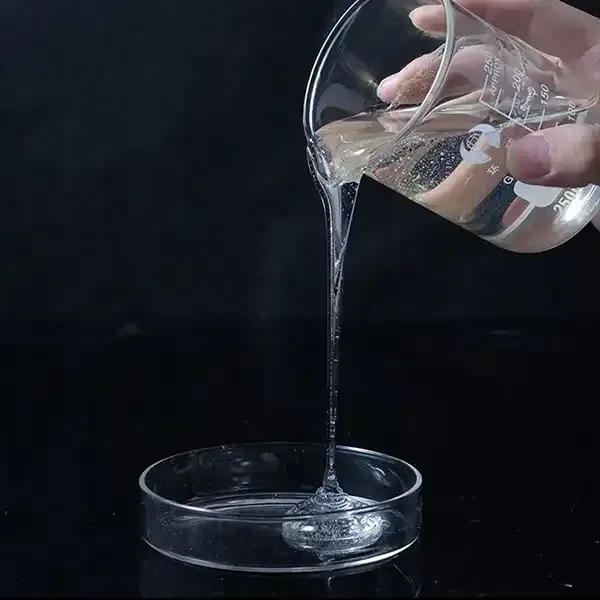Exploring HPMC Powder Properties, Applications, and Benefits
Hydroxypropyl methylcellulose (HPMC), a non-ionic cellulose ether, is increasingly gaining attention in various industries, particularly in pharmaceuticals, construction, cosmetics, and food processing. This versatile polymer is derived from natural sources, making it an eco-friendly option for many applications. In this article, we will delve into the properties, applications, and benefits of HPMC powder.
Properties of HPMC Powder
HPMC powder is a white to off-white, odorless, and tasteless fine powder. It is water-soluble, forming a viscous solution that exhibits excellent adhesive properties. The solubility and viscosity of HPMC can be adjusted by altering the hydroxypropyl and methoxy groups in its molecular structure. This feature allows manufacturers to tailor HPMC for specific applications, making it suitable for a wide range of formulations.
One of the most significant properties of HPMC is its ability to form gels and films. When dissolved in water, it can create a clear, flexible gel that is impermeable to air, making it an ideal ingredient in various products. Additionally, HPMC is stable across a wide pH range, ensuring its functionality in diverse environments.
Applications of HPMC Powder
The versatility of HPMC powder translates into an array of applications across multiple industries
1. Pharmaceuticals HPMC is widely used as a solvent, binder, and coating agent in tablet formulations. Its controlled-release properties enhance the effectiveness of medications by allowing for gradual absorption, thus improving patient compliance.
2. Construction In the construction industry, HPMC is a vital ingredient in cement-based products, such as tile adhesives and joint compounds. Its water-retention capabilities prevent the rapid drying of materials, allowing for better adhesion and workability.
hpmc powder

3. Cosmetics HPMC is commonly found in cosmetic formulations as a thickening and emulsifying agent. It helps stabilize creams and lotions, providing a smooth texture and enhancing the product's application.
4. Food Processing In the food industry, HPMC can act as a food thickener, stabilizer, and emulsifier. It is often used in gluten-free products to improve texture and moisture retention, catering to the growing demand for alternative food options.
5. Personal Care Products HPMC is increasingly utilized in personal care products, such as shampoos and conditioners, where it serves as a thickening agent and helps retain moisture.
Benefits of HPMC Powder
The use of HPMC powder comes with several benefits. Firstly, it is safe for consumption, making it an excellent choice for pharmaceuticals and food applications. Its non-toxic nature ensures that it poses minimal risk to human health.
Secondly, HPMC is a highly effective thickening agent, enhancing the texture and stability of formulations without compromising their performance. This quality is particularly valuable in pharmaceutical and cosmetic products, where consistency and efficacy are critical.
Moreover, HPMC contributes to the sustainability of various industries. As a plant-derived polymer, it aligns with the increasing demand for eco-friendly ingredients, providing a renewable alternative to synthetic polymers.
Conclusion
In summary, HPMC powder is a versatile and valuable ingredient that plays a crucial role across various industries. Its unique properties—such as water solubility, gel formation, and stability—make it suitable for numerous applications, ranging from pharmaceuticals to construction and beyond. As the demand for natural and sustainable products continues to rise, HPMC's significance will undoubtedly grow, cementing its place as an essential component in modern formulations.
-
Rdp Powder: Key Considerations for Wholesalers in the Building Materials IndustryNewsJul.08,2025
-
Key Considerations for Wholesalers: Navigating the World of Hpmc - Based ProductsNewsJul.08,2025
-
Hpmc Detergent: Key Considerations for WholesalersNewsJul.08,2025
-
Key Considerations for Wholesalers: China Hpmc For Tile Adhesive, Coating Additives, Concrete Additives, and MoreNewsJul.08,2025
-
Crucial Considerations for Wholesalers: Navigating the World of Construction MaterialsNewsJul.08,2025
-
Key Considerations for Wholesalers Sourcing Additive For Cement, Additive For Concrete, Additive For Putty from Additive Manufacturer Shijiazhuang Gaocheng District Yongfeng Cellulose Co., Ltd.NewsJul.08,2025




